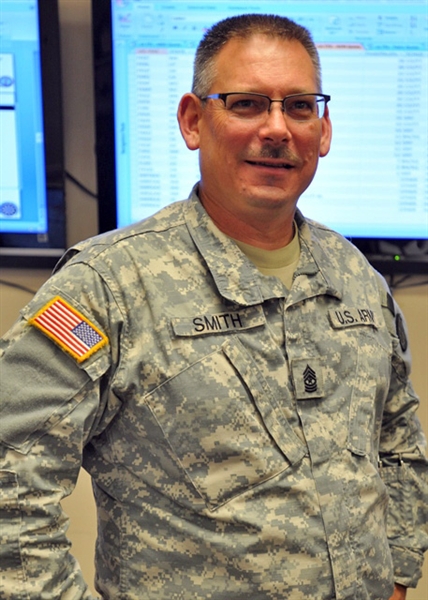COLUMBUS, Ohio, June 29, 2011 — The Defense Department’s budget landscape is changing, but the logistics community must continue providing U.S. troops the best possible support while finding efficiencies and cutting costs, the Pentagon’s top logistics official said here yesterday.
Defense logistics’ top priority always will be providing the best possible support to warfighters in the field, Ashton B. Carter, undersecretary of defense for acquisitions, technology and logistics, told attendees at the 2011 Defense Logistics Agency Industry Conference and Exhibition.
Carter said he’d just returned from an eight-day trip to Afghanistan where he focused on rapid acquisition support, contracting and logistics. DLA accomplished a “true miracle” in supporting the troop surge into Afghanistan last year, he said, and it now must focus on ensuring the force there remains capable as troops withdraw.
“Our overall objective must be to make the force there, which is going to be somewhat smaller over the next year, nevertheless more capable than the force that has been in Afghanistan this past year,” Carter said.
To ensure forces in Afghanistan remain capable, the defense logistics community is looking at several initiatives, such as providing more enabling technologies to enhance intelligence, surveillance and reconnaissance and counter explosives. They also are looking at providing more reach-back capability as a substitute for military support on the ground, and strengthening Afghan security forces so they can take on more responsibility.
DOD also is focusing on building up logistics in Afghanistan to eliminate transportation costs, and ensure contracting money is spent responsibly there with a focus on its effect on local Afghan communities and culture, Carter said.
While support for warfighters in Afghanistan and other areas around the world is the first priority for the defense logistics community, logisticians also must focus on the changing budget landscape and find ways to increase efficiency while maintaining performance, Carter said.
“Two things are clear,” he said. “First, we’re not going to have the ever-increasing budgets of the post‑9/11 decade. This is going to feel very different to a group of government and industry managers and congressional overseers who have grown accustomed to a circumstance in which they could always reach for more money when they encountered a managerial or technical problem or a difficult choice. Those days are gone for all of us.
“The second thing is, the president, the secretary of defense, and the taxpayer are going to expect us to make every dollar we do get count,” he added.
About $400 billion of the $700 billion defense budget is spent on contracted goods and services, Carter said, and the defense logistics community is looking at how to reduce costs. The department already has made cuts by eliminating underperforming or unnecessary programs like a new presidential helicopter and the Army’s Future Combat System, he said, and now it must find ways to reduce costs in other areas.
“If you’re really going to deal with a circumstance in which you want to have the same capability or as much military capability as we can, [then] just as we’re trying to do in Afghanistan, in the budget as a whole, you have to look at everywhere we’re spending money and try to get better value everywhere that we’re spending money,” Carter said.
Of the $400 billion spent on contracted goods and services, about $100 billion goes to procuring weapons systems and $200 billion goes to services, Carter said. Also, for every 30 cents the department spends on buying something, it spends 70 cents maintaining it.
When it comes to contracting services, the department is improving practices to get better value, unifying efforts, improving requirements, and taking advantage of competition, Carter said. Officials also are looking to save money by sustaining existing systems, such as the F‑22 Raptor fighter and the C‑17 transport plane, and finding how to best manage those costs while looking ahead to future systems and planning for their total ownership cost, Carter said.
The F‑35 Joint Strike Fighter is a prime example, he said, because it is the department’s largest and most expensive program and one that will be around a long time.
“To the extent that we can do it, we are planning now and managing now to not only have an affordable aircraft to acquire, which is also a challenge, but also an affordable aircraft to own when we do get it,” he said.
The department looks to save money while maintaining quality support and looking for improvements and innovations, Carter said. He added that small businesses will be an important partner because they offer a constant source of renewal and innovation, increase competition, and make valuable contributions in the customer service area.
“A strong, technologically vibrant and financially successful defense industry is in the national interest,” he said. “We need, collectively, to be stewards of that industry so it remains vibrant for the future.”
There is no doubt that increased efficiency is the way of the future for DOD and the government as a whole, Carter said, and the defense logistics community is working to adapt while ensuring America’s military receives the best support possible.
“The world’s changing; the budget landscape is changing,” Carter said. “We in DOD are trying to change. I know industry’s changing also. The only thing that doesn’t change, and I saw again and again last week in Afghanistan, is the dedication and quality of the men and women in uniform, and we owe them our best dedication back.”
Source:
U.S. Department of Defense
Office of the Assistant Secretary of Defense (Public Affairs)

 von
von 